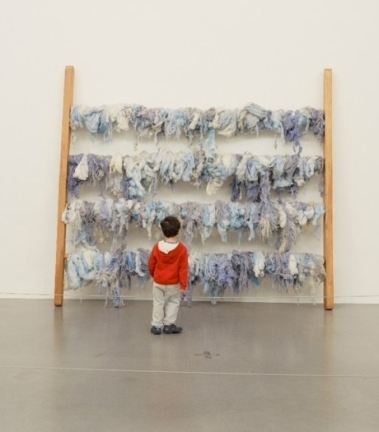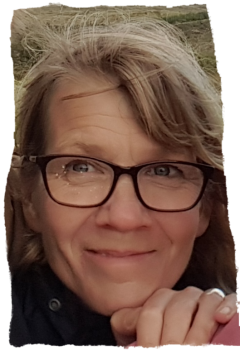In the last post I wrote on anxiety. Now I want to think about the importance of love in relation to research. I imagine that some reading this will be surprised, if not unnerved, by the idea that love has a place in the research process. Surely love is erratic, messy, emotional and highly subjective? Love is not objective, measurable or ‘rigorous’, so what relevance does it have to a process of scholarly investigation? Yet I find valuable insights in some formulations of love that can inform and support the type of research many of us are trying to instigate in art museums.
Take for example the advice given to educators by the writer and teacher Paulo Freire who identified that:
We must dare, in the full sense of the word, to speak of love without the fear of being called ridiculous, mawkish, or unscientific, if not antiscientific. We must dare in order to say scientifically, and not as mere blah–blah–blah, that we study, we learn, we teach, we know with our entire body. We do all of these things with feeling, with emotion, with wishes, with fear, with doubts, with passion, and also with critical reasoning. However, we never study, learn, teach, or know with the last only. We must dare so as never to dichotomize cognition and emotion.
I interpret Freire’s words to mean that it is vital that we bring emotional as well as intellectual commitment to all that we do. ‘Love’ for Freire represents the degree of engagement that we must make to our work to ensure it is of the highest quality.
Thinking about how I do research I recognise the states of being he lists – doubt, fear, wishfulness and passion – and the importance these have in shaping not only my thinking but the entirety of my involvement in any project. Put another way, the more passionate and committed I am to a question or problem I am interrogating, the harder I try to dig into it and understand it more fully. The more doubtful I am, the more I persist in finding out more. The more I ‘love’ my research, the more I give to it.

In the past I have written about how Freire’s ideas can help guide processes of teaching and learning, and I return here to a quote I have cited before as again I see it being relevant to research. Try reading it substituting the words ‘researcher’ for ‘teacher’ and ‘research’ for ‘teaching’:
The task of the teacher, who is also a learner, is both joyful and rigorous. It demands seriousness and scientific, physical, emotional, and affective preparation. It is a task that requires that those who commit themselves to teaching develop a certain love not only of others but also of the very process implied in teaching.
What Freire is saying here as I understand it, is that teaching (or researching) requires us to love the ‘very process’ as well as the people we might come into contact with. It necessitates a focus on an emerging set of understandings, rather than a specific outcome and a involves a wholehearted commitment to an ethical practice.
More recently I have been reading adrienne maree brown’s writing on the concept of ’emergent strategy’. Love is here too in her articulation of an approach to change based on recognising complexity and the importance of authentic connections and entwined relationships. maree brown celebrates the adaptive, the non-linear and the iterative, all of which resonates with my understanding of how art museum research needs to function. She talks about ‘just relationships’ that value multiple forms of knowledge and advocates for transparency and co-operation around decision-making. And she concludes by identifying that practising emergent strategy is ‘a way to practice love.’
Love then, in my view, sits at the heart of a transformative research practice within the art museum. This is research that seeks to bring about positive change, that draws on multiple knowledges non-hierarchically, that celebrates difference and does not seek to simplify complexity. It is research that engages people emotionally and intellectually, allowing them to commit entirely to the exploration of ideas in collaboration with others.
It’s probably not that easy or simple, bringing as it does elements of doubt, frustration and fear, but it’s got to be worth it.

